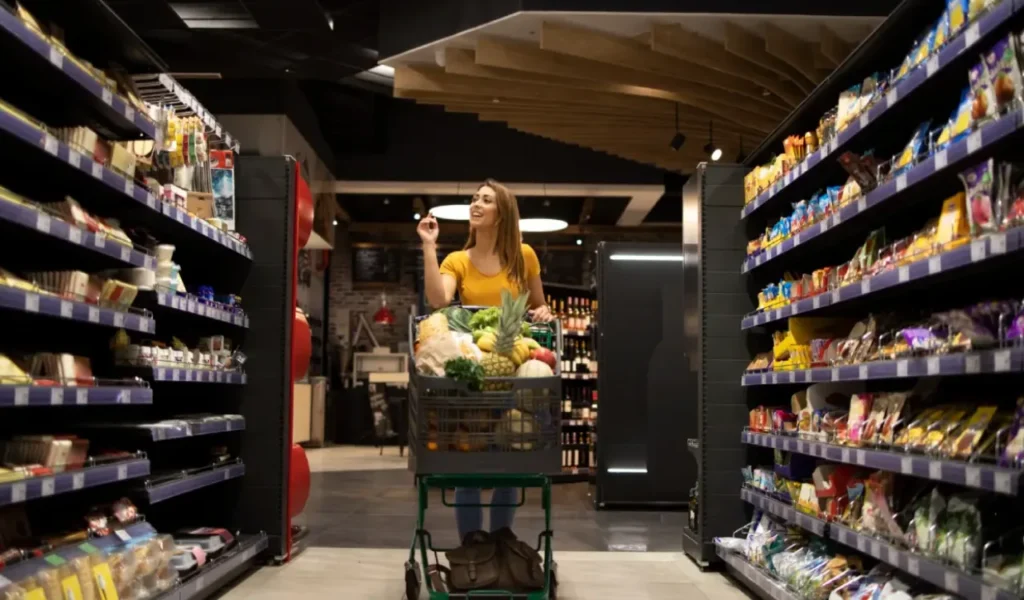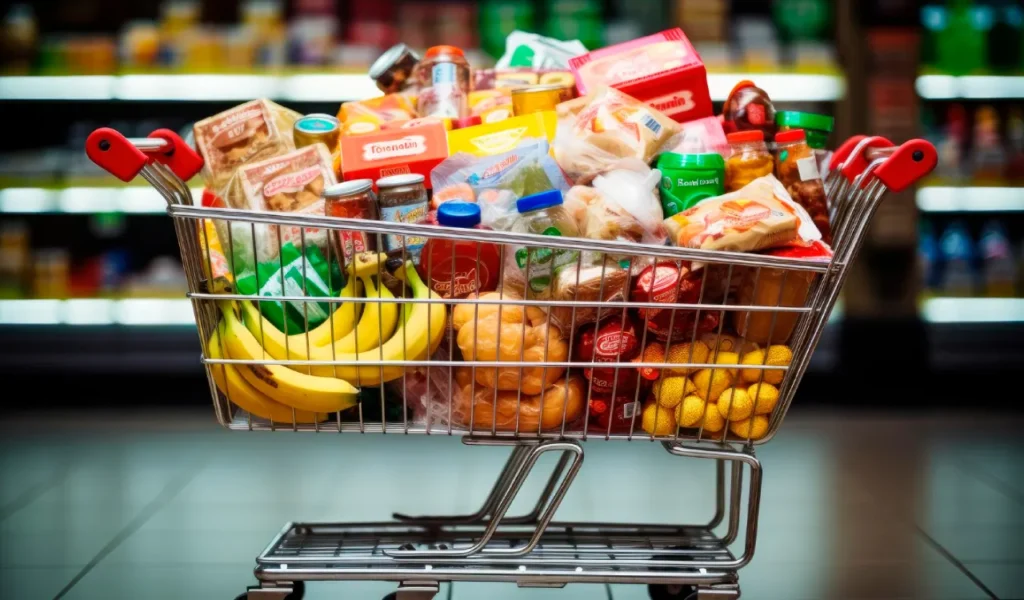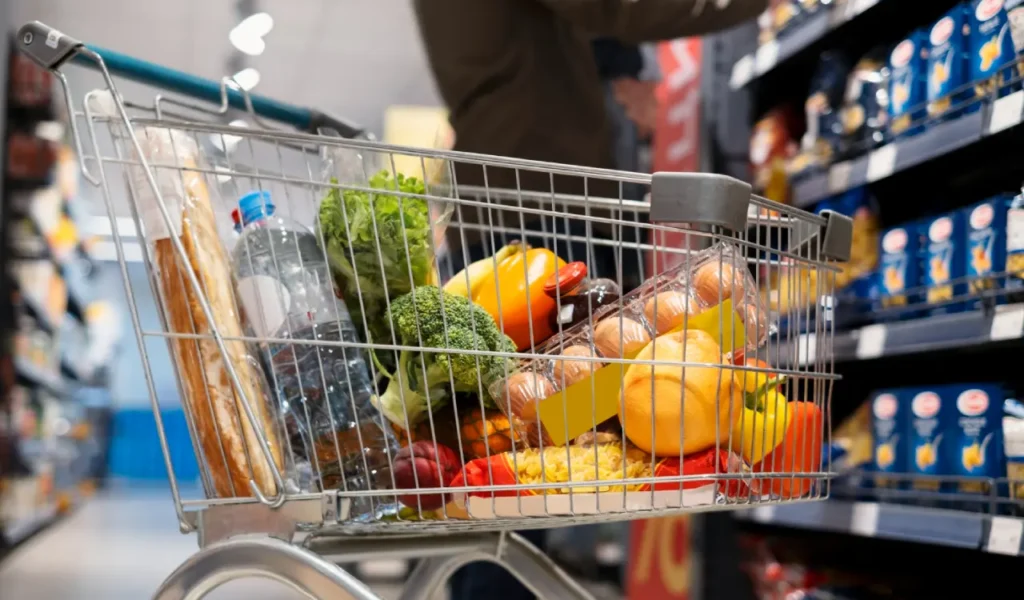The CPG + AI Revolution: Paving the Way for Enhanced Growth and Efficiency
- Introduction
- Unlocking the Potential of CPG + AI
- Role of CPG + AI Systems: Challenges and Strategic Advantages
- Data Management and Quality Risks in CPG + AI Implementation
- Integration with Existing CPG + AI Systems
- CPG + AI in Change Management
- Scalability and Flexibility in CPG + AI Implementation
- Barriers and Innovations in CPG + AI Systems
- Continuous Learning and Adaptation through CPG + AI Systems
- Conclusion

Consumer Packaged Goods (CPG) companies are facing a rapidly evolving landscape. Consumers demand personalized experiences, efficient deliveries, and sustainable practices. This creates a complex landscape where navigating these challenges can feel overwhelming. In this context, CPG + AI emerges as an efficient tool for CPG companies to unlock a treasure trove of opportunities, transforming how they meet consumer needs, and achieve sustainable growth.
Read More: Learn the Key Difference Between Traditional and Generative AI
Cognitive AI goes beyond simple automation, mimicking human-like learning and decision-making to optimize every step of the process. This article delves deeper into the transformative power of the application of artificial intelligence in the retail and CPG sectors.
We shall explore the practicalities of implementation, the challenges companies might encounter, and strategic approaches to unlocking the full potential of this revolutionary technology.
Unlocking the Potential of CPG + AI
Demand Foresight
Cognitive AI can analyze mountains of data, not just sales history but also social media, weather patterns, and even global events. This allows it to not just predict demand but also anticipate shifts and emerging trends, enabling CPG companies to get ahead of the curve.
Self-Optimizing Logistics
Imagine a system that learns from real-time traffic data, weather forecasts, and even driver behavior. According to a report by Msersk, AI can set up efficient transportation plans and optimize delivery for maximum efficiency. This translates to faster deliveries, reduced costs, and a minimized environmental impact.
Predictive Maintenance in CPG + AI Systems
By analyzing sensor data from equipment in CPG artificial intelligence can predict maintenance needs before breakdowns occur. This proactive approach prevents costly downtime and ensures production runs smoothly, keeping shelves stocked and customers satisfied.
Beyond Collaboration, a Connected Ecosystem
Applications of artificial intelligence in the retail and CPG sector foster a true network within the supply chain by facilitating seamless communication and data sharing between all players, from raw material suppliers to retailers. This fosters transparency, allowing for faster and more coordinated responses to disruptions.
Waste Reduction with AI-Powered Insights
In CPGs, cognitive AI can analyze vast amounts of production data to identify and help eliminate waste.
For instance, Unilever and Alibaba Group have created an Al-enabled recycling system that automatically identifies and sorts plastic packaging. This translates not just to cost savings but also to a more sustainable supply chain, a key concern for both businesses and consumers.
Read More: Learn About the Key Differences Between Traditional and Generative AI
Role of CPG + AI Systems: Challenges and Strategic Advantages
The integration of cognitive AI into CPG supply chains, while offering numerous benefits, also presents its own set of challenges.
When it comes to the applications of artificial intelligence in the retail and CPG sectors, successfully navigating these challenges requires strategic planning and a comprehensive approach to implementation.
Data Management and Quality Risks in CPG + AI Implementation
Problem
Cognitive AI systems rely on clean, accurate, and relevant data to function effectively. Poor data quality can lead to inaccurate predictions and suboptimal decisions.
Solution
- Data cleansing and normalization techniques can be used to improve data quality.
- Applications of artificial intelligence in the retail and CPG sector can help identify and flag anomalies or inconsistencies within the data.
- Machine learning can be employed to automate data quality checks and improve data pipelines over time.
Integration with Existing CPG + AI Systems
Problem
Integrating new cognitive AI solutions with existing IT infrastructure can be complex and disruptive to ongoing operations. Compatibility issues and data silos can hinder the effectiveness of the AI system.
Solution
- Interoperability tools can be used to facilitate communication between AI systems and existing software.
- In CPG, artificial intelligence can analyze existing data structures and recommend integration strategies.
- These AI solutions can be implemented in phases to minimize disruption.
CPG + AI in Change Management
Problem
Introducing cognitive AI into traditional supply chains can create anxiety and resistance among employees concerned about job security or the ability to learn new skills.
Solution
- Transparent communication about the role of cognitive and its impact on jobs can alleviate employee concerns.
- Training programs can equip employees with the skills needed to work alongside AI systems.
- The focus can be shifted towards human-AI collaboration to highlight how cognitive AI can augment human capabilities.
Scalability and Flexibility in CPG + AI Implementation
Problem
As companies grow and market dynamics evolve, cognitive AI systems need to adapt to changing needs and remain effective. Rigid and inflexible AI solutions can become outdated quickly.
Solution
- Cloud-based AI solutions offer inherent scalability to accommodate growth.
- Self-learning AI systems can continuously improve their performance based on new data and changing conditions.
- Modular AI architectures allow for easier integration of new functionalities as needed.
Barriers and Innovations in CPG + AI Systems
Problem
Increased reliance on data raises concerns about data security breaches and the potential misuse of sensitive customer information in the applications of artificial intelligence in the retail and CPG sectors.
Solution
- Implementing robust cybersecurity measures like encryption and access controls protects sensitive data.
- Privacy-enhancing technologies like anonymization and differential privacy can mitigate privacy risks.
- Adherence to data protection regulations ensures compliance and builds consumer trust.
Read More: Learn About the Challenges and Opportunities AI Poses for SMEs
Continuous Learning and Adaptation through CPG + AI Systems
Problem
As consumer behaviors are dynamic in nature, applications of artificial intelligence in the retail and CPG sectors need ongoing updates and adjustments to maintain their effectiveness.
Solution
- In CPG, artificial intelligence algorithms can be designed to learn from new data and adapt to changing patterns.
- Regular monitoring and evaluation of AI performance allows for early identification of issues requiring adjustments.
- A dedicated team can oversee the ongoing maintenance and improvement of the AI system.
Read More: Learn About the Future of CPG Supply Chains and Beyond
Case in Point: Nestlé
Nestlé, a global leader in food and beverage, boasts a complex and extensive supply chain network spanning the world. This intricate system, responsible for delivering well-known products like Maggi and Kit Kat, leverages cutting-edge technologies like cognitive AI in its CPG supply chain to ensure efficient and sustainable operations. With a focus on optimizing everything from demand forecasting to logistics, Nestlé has incorporated artificial intelligence into its systems for a seamless supply chain process.
- Nestlé USA has signed a multi-year agreement with Enterra Solutions. According to the
2019 press release announcing the contract, this
partnership will provide Nestlé with a
next-generation analytics platform and business applications. The collaboration focuses
on two key areas:
- Demand Insights: This module within Enterra’s system will optimize demand forecasting and planning.
- Enterprise System: This platform will be deployed across Nestlé’s retail partners, enhancing collaboration and efficiency.
- The overall goal is to leverage AI-powered decision-making to drive growth, improve efficiency, and support Nestlé’s business objectives.
- Nestlé utilizes SAS software for advanced analytics and AI-powered demand planning, minimizing inventory overstocks and supply chain errors.
- Nestlé’s 2023 Annual Report states that the company leverages digital technologies, including artificial intelligence (AI), to sharpen decision-making, power innovation, and predict consumer demands.
- Nestlé organized a digital campaign called KitKat Chocolatory ecommerce experience, which aimed to analyze the personalized taste choices of their customers.
Nestlé serves as a prime example of how CPG artificial intelligence transforms supply chains. The company leverages cognitive AI not just for internal operations but also for personalized customer experiences like the KitKat Chocolatory campaign.
Nestlé highlights the well-rounded potential of the applications of artificial intelligence in the retail and CPG sectors. As the industry continues to embrace these advancements, we can expect even more innovative applications of artificial intelligence in the retail and CPG sectors that will reshape the future of CPG supply chains.
Read More: Learn About the Challenges, Potentials, and Benefits of Generative AI
Explore Syren’s tailored solutions for diverse consumer product sectors to unlock hidden efficiencies and future-proof your supply chains. Our solution ensures streamlined processes for end-to-end supply chain visibility in the production and delivery of high-quality products to maintain profits and a competitive edge in the market.
Fill out the form below to connect with our supply chain experts and explore our solutions. Schedule a free demo!


